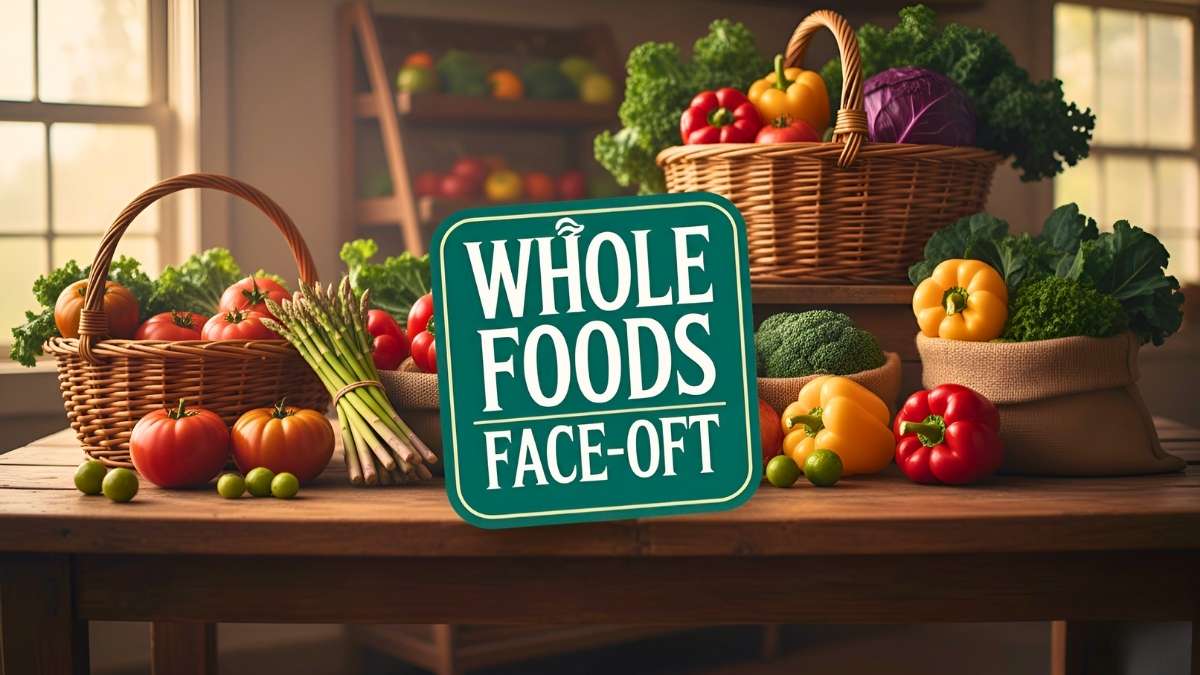When it comes to food, there’s an ongoing debate that seems to pop up everywhere: Whole foods vs. ultra-processed foods. On one side, we have the natural, unrefined foods fruits, vegetables, grains, and meats that have been staples of human diets for centuries. On the other, we have the shiny, convenient packages of ultra-processed snacks, ready meals, and fast food that dominate supermarket aisles.
So, which is better for your health, your waistline, and your overall well-being? In this post, we’re diving into the truth behind these food wars. We’ll uncover what you need to know about both, how they affect your body, and how choosing one over the other can dramatically change your diet (and life!) forever.
What Are Whole Foods vs. Ultra-Processed Foods and Why Do They Matter?
Whole foods are foods that are as close to their natural form as possible. They include fresh fruits, vegetables, whole grains, nuts, seeds, and unprocessed meats. These foods are nutrient-dense and free from added chemicals, preservatives, or artificial ingredients.
On the other hand, ultra-processed foods are foods that have been significantly altered from their original state. They often contain a mix of ingredients like preservatives, artificial flavors, colors, and other additives designed to enhance taste, texture, or shelf life. Examples include packaged snacks, sugary drinks, ready-to-eat meals, and even some “healthier” options like protein bars.
Why does this matter? Because what we eat can directly impact our health ranging from energy levels to weight gain to long-term risks like heart disease and diabetes.
How Ultra-Processed Foods Affect Your Body – Explained Simply
Ultra-processed foods are often designed to be irresistibly tasty, but they come at a cost. These foods are high in unhealthy fats, sugar, and salt, and are often stripped of fiber and essential nutrients. Over time, consuming too many ultra-processed foods can:
- Increase your risk of chronic diseases: Studies have linked ultra-processed food consumption to obesity, heart disease, diabetes, and even cancer.
- Cause blood sugar spikes and crashes: Ultra-processed snacks and meals are typically high in refined carbs, which cause quick spikes in blood sugar followed by energy crashes, leading to hunger and overeating.
- Lead to weight gain: Because these foods are calorie-dense and not as filling as whole foods, they can contribute to overeating and weight gain over time.
Why Whole Foods Are a Game Changer for Your Health
Whole foods, on the other hand, offer a wide range of health benefits that can change the way you feel, look, and function every day. Here’s how they help:
- Nutrient-rich: Whole foods are packed with vitamins, minerals, fiber, and antioxidants that support your immune system, digestive health, and overall well-being.
- Sustained energy: Unlike ultra-processed foods that can cause energy crashes, whole foods provide a steady source of energy thanks to their balanced nutrient profiles. For example, oatmeal or quinoa is digested more slowly, helping keep blood sugar levels stable.
- Weight management: Whole foods are naturally lower in calories and higher in fiber, which helps you feel fuller for longer, reducing the temptation to snack between meals.
- Better mental clarity: Some studies suggest that a diet rich in whole foods can improve brain function and may reduce the risk of cognitive decline as you age.
Best Tips to Make the Most of Whole Foods in Your Diet
If you’re ready to take the plunge and cut back on ultra-processed foods, here are some practical tips that can help you transition to a whole foods lifestyle:
- Start with small swaps: Begin by replacing processed snacks with fresh fruits or veggies. Swap sugary drinks for water or homemade smoothies. Every small change adds up.
- Plan your meals: To avoid the temptation of grabbing ultra-processed convenience foods, plan your meals in advance. Batch cooking and meal prepping can make it easier to stick to whole foods.
- Embrace variety: One of the best things about whole foods is the wide variety available. Experiment with different grains, vegetables, fruits, and proteins. This will not only keep meals exciting but also ensure you get a broad range of nutrients.
- Shop the perimeter of the grocery store: Most whole foods are located on the outer edges of the store (fruits, vegetables, meats, and dairy), while processed foods tend to fill the middle aisles. Make the perimeter your main shopping area.
Common Mistakes to Avoid When Transitioning to Whole Foods
Switching to whole foods can be a huge step for your health, but there are a few common mistakes to watch out for:
- Thinking all processed foods are bad: Not all processed foods are unhealthy. For example, frozen vegetables or canned beans can still be nutritious and convenient without all the unhealthy additives.
- Overcomplicating meals: Whole food meals don’t need to be gourmet. Simple dishes with a few fresh ingredients can be just as tasty and satisfying as more elaborate recipes.
- Not reading labels: Even whole foods can have hidden sugars, sodium, or preservatives. Always check labels, even on products like granola, sauces, or dairy.
Conclusion
The food wars between whole foods and ultra-processed foods are not just about taste it’s about your health. Choosing more whole foods can lead to better energy, improved mental clarity, and a lower risk of chronic diseases. While it may take some time to adjust, the benefits are well worth it. By making small changes and swapping out processed foods for their whole counterparts, you can drastically improve your diet and well-being.
FAQs
When should I start switching to whole foods?
It’s never too late to start! Even small changes, like adding more fruits and vegetables to your meals, can have a positive impact. Start with simple swaps and gradually reduce processed foods from your diet.
What are some easy whole food snacks?
Fresh fruits, raw nuts, yogurt with honey, veggie sticks with hummus, or whole grain crackers with avocado are all excellent snack options that require little prep.
Why are ultra-processed foods so addictive?
Ultra-processed foods are designed to be hyper-palatable, meaning they combine sugar, fat, and salt in a way that triggers pleasure centers in the brain, leading to cravings and overeating.
How can I afford whole foods on a budget?
Buying in bulk, shopping at local farmer’s markets, and focusing on seasonal produce can help make whole foods more affordable. Frozen fruits and vegetables are also great cost-effective options.
Can I still enjoy treats while eating whole foods?
Absolutely! Treats made from whole ingredients, like homemade cookies with oats and dark chocolate or fruit-based desserts, can satisfy cravings without the additives found in ultra-processed foods.




